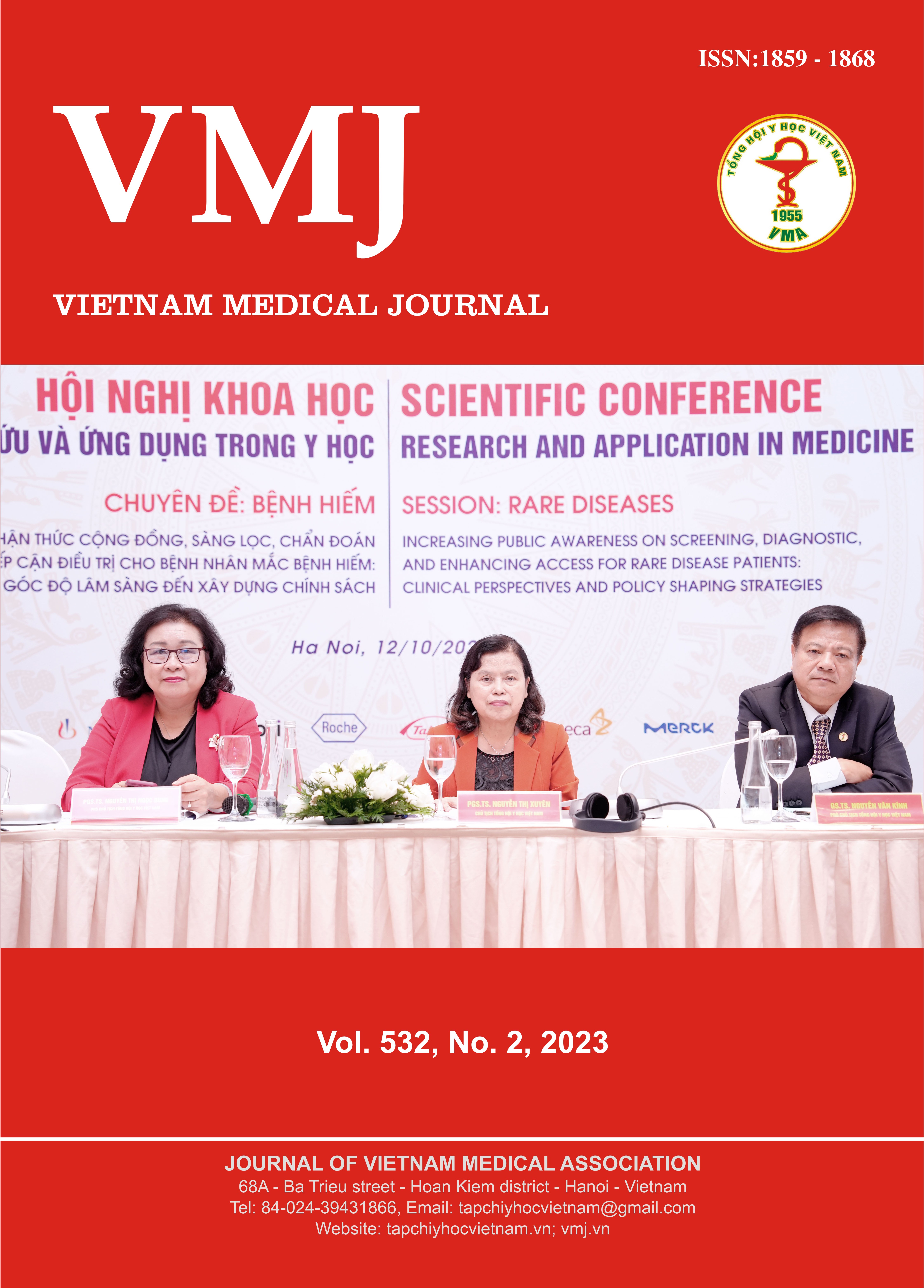STRATEGIES TO RESPONSE TO PSYCHOLOGICAL TRAUMA OF HEALTHCARE WORKERS IN VIETNAM DURING THE COVID-19 PANDEMIC: IMPLICATION FOR THE FUTURE
Main Article Content
Abstract
The COVID-19 pandemic has brought great challenges and stress to healthcare workers (HCWs). The application of appropriate strategies to respond to psychological trauma contributes to the protection of HCWs’ well-being. The objective of this study is to discover the strategies that HCWs used for psychological trauma coping during their participation in COVID-19 prevention and control. This is a qualitative study, conducted in Ho Chi Minh City (HCMC), Vietnam, collecting information by in-depth interviews with 40 HCWs participating in COVID-19 prevention and control in HCMC in 2021. Findings showed that strategies of stress coping that HCWs used in the pandemic management are diverse. There were six main themes identified as positive coping solutions in this study including rest and entertainment activities; improving the working environment; maintaining social interaction; positive thinking and action; strengthening personal coping capacity; and showing professionalism at work. In addition to these positive coping solutions, some participants expressed that they have used negative coping skills including using stimulants; taking their anger out on others; running away from work; refusing contact with others; surrendering to their own fate; and quitting their jobs. In addition to general solutions, the participants in charge of different working groups had some specific solutions to deal with the psychological trauma.
Article Details
Keywords
coping, healthcare workers, psychological trauma, Vietnam
References
2. Ha, D.T.; Thanh, H.N.; Phuong, H.T.; Son, H.T.; Hiep, N.T.; Thuy, L.T.B.; et al. (2022). Anxiety and stress among healthcare workers in covid-19 pandemic: a qualitative study. Ho Chi Minh City Journal of Medicine, ISSN 1859-1779; 26(2): 237-245.
3. Ha, D.T.; Thanh, H.N.; Phuong, H.T.; Son, H.T.; Hiep, N.T.; Thuy, L.T.B.; et al. (2021). Depression, anxiety and stress levels of healthcare workers in the pandemic of COVID-19 in Ho Chi Minh City. Ho Chi Minh City Journal of Medicine, ISSN 1859-1779, 25(6): 236-243.
4. Callus, E.; Bassola, B.; Fiolo, V.; Bertoldo, E.G.; Pagliuca, S.; Lusignani, M. Stress Reduction Techniques for Health Care Providers Dealing with Severe Coronavirus Infections (SARS, MERS, and COVID-19): A Rapid Review. Front. Psychol. 2020, 11:589698. doi: 10.3389/fpsyg.2020.589698.
5. Ferendiuk, E., Biegańska, J. M., Kazana, P., and Pihut, M. Progressive muscle relaxation according to Jacobson in treatment of the patients with temporomandibular joint disorders. Folia Med. Cracovien. 2019, 59, 113–122.
6. Kabat-Zinn J. An outpatient program in behavioral medicine for chronic pain patients based on the practice of mindfulness meditation: theoretical considerations and preliminary results. Gen Hosp Psychiatry. 1982 Apr;4(1):33-47. doi: 10.1016/0163-8343(82)90026-3. PMID: 7042457.
7. Azam, M.A.; Latman, V.V., Katz, J. Effects of a 12-minute smartphone-based mindful breathing task on heart rate variability for students with clinically relevant chronic pain, depression, and anxiety: protocol for a randomized controlled trial. JMIR Res. Protoc. 2019, 8:e14119. doi: 10.2196/14119.
8. Sultana, A.; Sharma, R.; Hossain, M.; Bhattacharya, S.; Purohit, N. Burnout among healthcare providers during COVID-19: Challenges and evidence-based interventions. Indian J. Med. Ethics 2020, 4:73.
9. World Health Organization. Mental Health and Psychosocial Considerations During the COVID-19 Outbreak, 18 March 2020. Geneva: World Health Organization.


